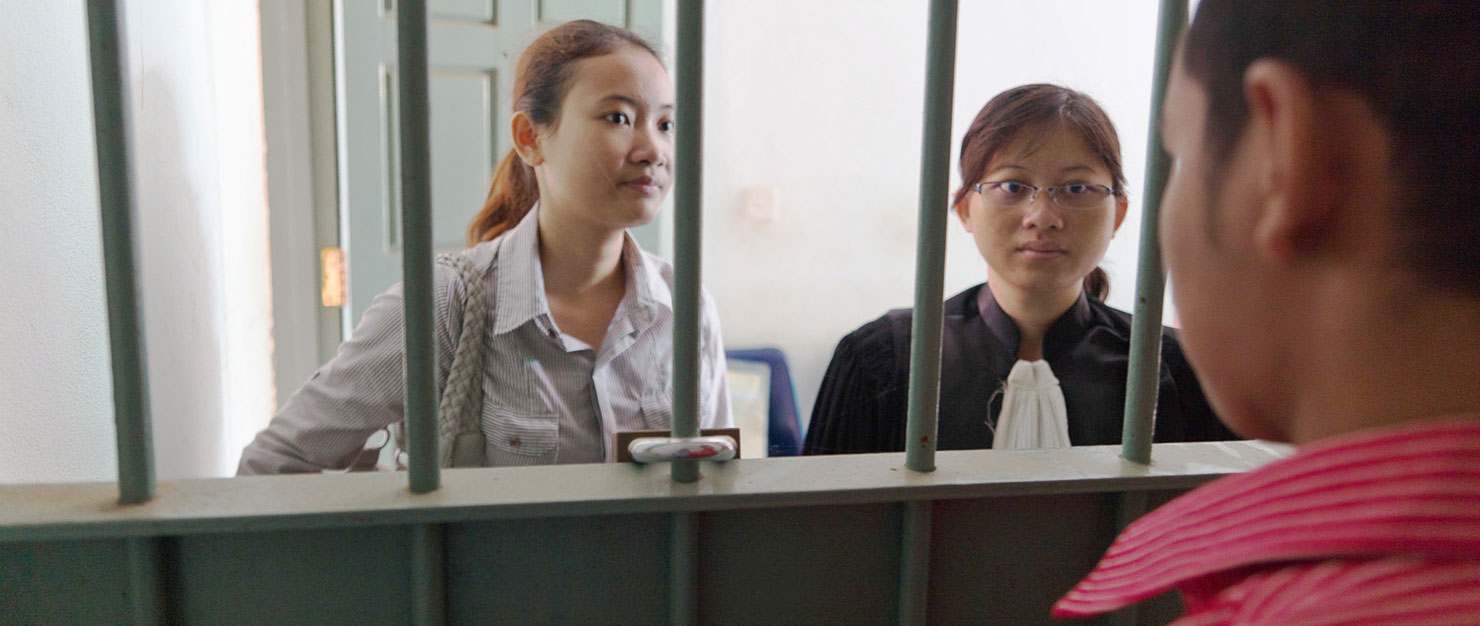

Billions of people around the world have unmet justice needs ranging from serious legal issues to more common issues like money and debt problems. For many, justice can be slow, or even non-existent due to lack of access or affordability of the civil and criminal justice systems. In Cambodia, Colombia, and Kenya, legal aid and empowerment programs are taking innovative approaches to reach people who need their services most.
WJP recently convened the World Justice Challenge Network to focus on high-impact grassroots efforts to build people-centered justice. It is one way the organization continues to deliver on its goal to advance locally led rule of law solutions.
Organizations like Kituo Cha Sheria in Kenya, Cambodia Bridges to Justice, and the Colombian Ministry of Justice are all working to bridge the justice gap in their respective countries.
“Access to justice is a constitutional right,” Kituo Cha Sheria Executive Director Annette Mbogoh told those gathered.
It is something she also tells those she meets in her native Kenya. Kituo Cha Sheria has worked to improve access to justice in Kenya since 1973. The organization’s mission goes beyond providing legal aid, the team also works to build legal awareness and empowerment, particularly around common issues like land rights and labor and housing rights. Mbogoh and her team work to empower communities across Kenya, to not only use the law, but to help shape it.
Mbogoh, and the other World Justice Challenge network members, understand that in order for a justice system to be effective, it needs to work for everyone, regardless of ethnicity, gender, status, or sexual orientation.
Legal issues can be complicated and hard for the layperson to understand. This can lead to many legal and administrative issues going unresolved. The Colombian government is trying to break down these barriers. The country’s Ministry of Justice is putting people at the center of the justice system through the development of a mobile application and online platform. LegalApp provides free legal knowledge and access to citizens by demystifying the legal process through simplification of language and advice. The application also explains steps citizens can take to resolve their legal needs.
A core challenge for access to justice is how external interventions can bring about meaningful change. A top concern for Kate Flower, international justice expert at the Centre for Law and Transformative Change, is rethinking how we invest in access to justice and how we can transform systems to address the justice gap. She shared her experience with Cambodia Bridges to Justice, one of the few legal aid organizations working in the country. According to Flower, funding for law and justice reform has dried up, in part because of Cambodia’s poor rule of law performance.
The country ranks 139 out of 140 countries and jurisdictions in the 2022 WJP Rule of Law Index, its civil justice score ranked 140, and its criminal justice score ranked 135. International donors are reluctant to invest in a country where the rule of law is not respected.
But Flower points out that experience shows shifting internal cultures and practices takes time. Less than 30 years ago, Cambodia had fewer than 10 lawyers left in the country. It is a big task to rebuild a justice system. She urges the donor community not to turn away from the Southeast Asian nation.
“It is unreasonable to expect an immediate level of success in a country like Cambodia,” Flower told the World Justice Challenge Network.
Flower’s most recent work has opened space for Cambodia’s access to justice civil society network to break this funding deadlock so that they can move forward with strength.
Earlier this year, Cambodia’s access to justice civil society network came together to demonstrate the impact of three decades of work and spark the inter-connectedness that is needed to advance the rule of law. They called on the international community to recognize that strong justice systems are at the heart of democracy.
Learn more about the World Justice Challenge.






